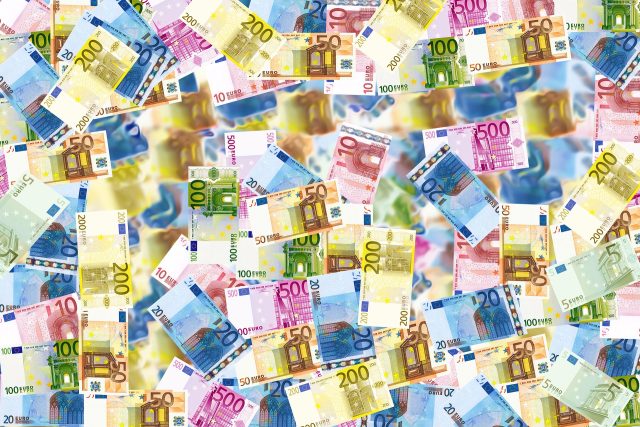
The European Monetary System Will Adapt to the Future as Early as 2023 with the Adoption of a Community Cryptocurrency
By the first half of 2023, the European Commission will present a draft law relating to the digital euro and then continue the process by officially negotiating with the European Parliament and all member states. This was announced by Valdis Dombrovskis, vice president of the EU Commission, with a speech during the joint conference with the ECB in relation to the digital Euro.
The intention is to bring the European monetary system into line with the inexorable process of digitization of the entire global economy. The future foresees a completely digitized economic world and monetary processes, as well as companies, will also have to be ready for change, in the face of an ever-increasing demand for digital payments, especially in the last period marked by the Covid19 pandemic which has, in partly, changed the system of buying and selling goods.
In 2021 only, cash payments suffered a sharp decline and in the euro area, digital payments increased by 12.5% for a total of around 114 billion transactions and a value of 197 trillion euros, of which almost half, from “card” payments. Although cash is still highly appreciated by most consumers, it is now considered obsolete for a large part of commercial transactions in many countries around the world and the integration of a fully digitized currency could help the transaction towards a balance between currencies long desired by analysts.
Brussels would like to design a digital currency that can also be used outside the Euro area while still offering privacy and inclusion, topics that have always been the basis of discussions regarding a complete digitization of money. The fundamental prerogative of the new currency will be to better preserve the privacy of those who will use it in their transactions, whether they are individuals or companies, especially for reduced proximity peer-to-peer payments that are closest to cash payments. The system under study will not compromise the international financial system but will guarantee complete protection against the risks of money laundering or financing aimed at terrorist or criminal associations.
The enormous diffusion of cryptocurrencies has also prompted the European Commission to investigate the possibility of having a specific one, of the same value and nature of the euro, to be introduced into the continental economic system and which can circulate from the moment of introduction directly passing from device to device without tracking of any kind except in some specific cases and without recording spending habits or individual payments of users, so as to keep the right to privacy intact.
The characteristics of the new currency must, inevitably, make its use extremely intuitive and the functions must be easy to understand with the chance, possibly, of using the digital euro, even “offline”. The commission assures that cash will not be abolished but will simply be integrated into a more modern and technological system which will have to serve to streamline payment procedures to make transactions easier to manage for companies and individuals. This modernization path, of course, will have to be supported by the ability, on the part of the member states, to promote the teaching of the necessary digital skills as well as a fundamental financial literacy to facilitate the economic transaction, as well as sufficient broadband coverage and capable of supporting the potential of the project.
The adoption of a digital currency would help commercial establishments and small businesses to receive payments with an alternative method that could be used by customers who already usually make payments in cryptocurrencies. Among the advanced features of the new payment system envisaged by the EU, that relates to some form of digital identity that can be associated with the payment so as to make it possibly more secure and automate it for subsequent transactions.
Alessandro Fiorentino



 Subscribe
Subscribe